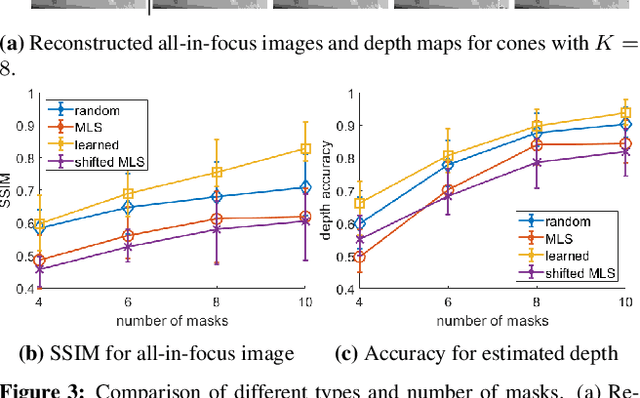A Simple Framework for 3D Lensless Imaging with Programmable Masks
Paper and Code
Aug 18, 2021



Lensless cameras provide a framework to build thin imaging systems by replacing the lens in a conventional camera with an amplitude or phase mask near the sensor. Existing methods for lensless imaging can recover the depth and intensity of the scene, but they require solving computationally-expensive inverse problems. Furthermore, existing methods struggle to recover dense scenes with large depth variations. In this paper, we propose a lensless imaging system that captures a small number of measurements using different patterns on a programmable mask. In this context, we make three contributions. First, we present a fast recovery algorithm to recover textures on a fixed number of depth planes in the scene. Second, we consider the mask design problem, for programmable lensless cameras, and provide a design template for optimizing the mask patterns with the goal of improving depth estimation. Third, we use a refinement network as a post-processing step to identify and remove artifacts in the reconstruction. These modifications are evaluated extensively with experimental results on a lensless camera prototype to showcase the performance benefits of the optimized masks and recovery algorithms over the state of the art.
 Add to Chrome
Add to Chrome Add to Firefox
Add to Firefox Add to Edge
Add to Edge